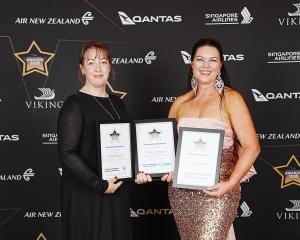
Judge Becroft will speak at the "Belief Change Family Journey" forum, hosted by Dyslexia Foundation of New Zealand (DFNZ), at Millbrook Resort, near Arrowtown, tomorrow.
He said his office often heard stories from neurodiverse children, for example, those who lived with dyslexia or autism, about mental illness, disengagement, marginalisation, discrimination and bullying.
"There are fantastic grass-roots organisations doing everything they can to support neurodiverse children at school, and in all the other areas of their daily lives.
"But these efforts need the backing of legislation that makes accessibility in education and every other aspect of children’s lives, a priority.
"At the heart of it all is a supportive and engaged family," he said.
DFNZ trustees chairman Guy Pope-Mayell said legislation needed to be the "end goal".
This had to be tackled with legislation that made accessibility across all areas of life a priority, he said.
The foundation was backing the new Accessibility Aotearoa Act, championed by the Access Alliance, which had support from all major parliamentary parties.
The new legislation sought to introduce enforceable standards for accessibility for all New Zealanders across all areas of life within two years.
Mr Pope-Mayell said the issues, at present, went beyond education.
"To put it bluntly, the workplace environment is not working for anyone with accessibility issues, nor are the other areas of life that people engage in, use or participate in. This drive for new legislation acknowledges that current Human Rights legislation is insufficient.
"It does not set clear and specific expectations on accessibility and it has no teeth.
"In contrast, the new Accessibility Aotearoa Act does all this and more.
"And the sooner it is introduced the better,” he said.
Tomorrow’s forum is being sponsored by Cookie Time Charitable Trust.
Advertisement













